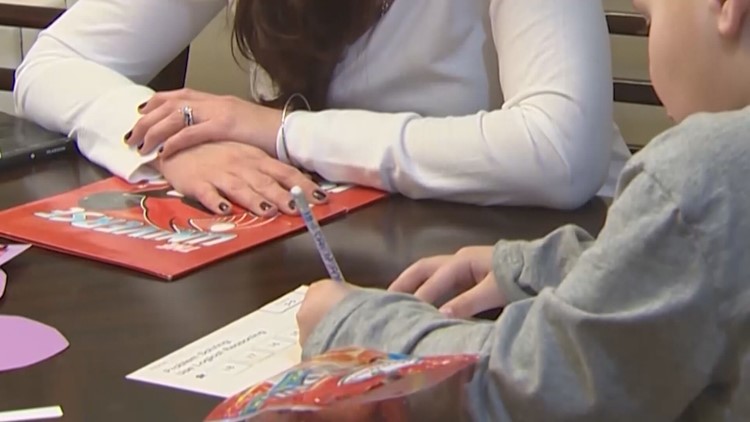COLUMBIA, S.C. — We often hear the phrase it takes a village to raise a child. The non-profit Kin Carolina is making sure that village is ready to serve children in kinship care.
Amanda Klein-Cox is with Kin Carolina Intervention, a group working to support kinship caregivers raising children with disabilities or special healthcare needs in the Midlands.
“If we can support caregivers and help them improve their own wellbeing that will trickle down to the wellbeing of the children in their care,” Klein-Cox said.
Kinship care is when a family member or friend steps in to take care of a child when the parent is no longer an option.
“Families who are caring for a relative or family friend's child who are not currently DSS involved are probably not accessing very many resources including financial support, even case management or just being connected to other communities," Klein-Cox said. "We have this huge population in South Carolina that is just fending for themselves."
The organization's program includes peer support groups, mentorships, and resources including trainings and financial support.
“I will hold their hands, hold the family members hand and guide them through the process of accessing resources," Yolanda Roary said. "I will also be by their side to ensure that they don’t feel alone because sometimes when you’re new to the kinship caregiver process you can feel alone."
Roary is a peer liaison with Kin Carolina and a kinship caregiver in the Midlands. His organization is hoping to spread the word about what they do to help kinship families across the Midlands.
“This is a brave space for them," Roary said. "There is someone that cares, there is someone that’s on their side now and that’s willing to help them navigate. whether it’s those doctors office appointments, whether it's DSS appointments, appointments with the school, whatever it may be. They’re no longer alone, there’s someone to help them."
According to Grand families, a national legal resource in support of grandparent raised children, for every child in formal care there are 19 in informal care across the country. In South Carolina, for every child in formal care, there are an estimated 308 children in informal care.
“We have a really broad view of what disability or a health care need could look like," Klein-Cox said. "I don’t want people to be afraid to apply thinking that maybe their child might not qualify. Your child does not need to have a diagnosis. You may just have concerns that they have needs above and beyond what their peers have. We just encourage you to apply."



